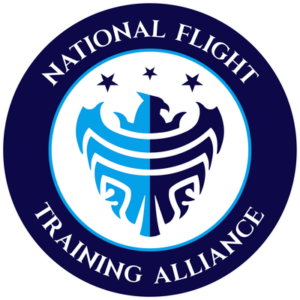
Media Contact: Barbara Fornasiero, EAFocus Communications; barbara@eafocus.com; 248.260.8466; Lee Collins, National Flight Training Alliance; lcollins@nftaus.org; 502.417.0572
Washington, D.C. —April 2, 2024— The Washington, D.C.-based National Flight Training Alliance (NFTA), an organization working to unify, promote and protect America’s flight training industry, is honored to have served since December 2023 on the FAA’s Aviation Rulemaking Committee on Pilot Mental Health Rulemaking Committee (ARC), formed to break down barriers that prevent pilots from reporting mental health issues to the agency, and fully supports the ARC report recommendations provided to the FAA and announced by the agency on April 1, 2024.
As noted in the report, which can be viewed here, the summary of the ARC recommendations are to:
- Create a non-punitive pathway for disclosing mental health conditions and treatments;
- Revise and evaluate the requirements for reporting and certification/qualification of psychotherapy (talk therapy), depression/anxiety; attention deficit hyperactivity disorder, and post-traumatic stress disorder;
- Ensure that aeromedical screening protocols and requirements are based on Safety Management System principles (i.e., proportionate, relevant, and risk-based), and appropriately communicated to applicants;
- Expand the use and promotion of Peer Support Programs;
- Develop mental health literacy, education, and awareness campaigns;
- Increase mental health training and improve quality assurance for Aviation Medical Examiners (AMEs);
- Modernize the FAA’s information management system/Aviation Medical Certification Subsystem.
“The flight training industry is the gateway to the aviation industry, and the first place where a culture change can truly take place among the future generation of aspiring pilots and air traffic controllers,” Captain Lee Collins, CEO of NFTA and an ARC committee member, said. “For far too long, earlier generations of pilots were fearful of reporting any kind of physical or mental health challenge for fear of job loss and related stigma. With these recommended changes, a culture shift supporting overall physical and mental health is a realistic and attainable goal. NFTA and our member organizations possess the collective knowledge, information and educational opportunities to impart positive change within the aviation community at the training level and are committed to doing so in cooperation with other aviation stakeholders and the FAA.”
Collins said that NFTA will continue to monitor the status of these recommendations as the FAA reviews for next steps.
About National Flight Training Alliance
Working to unify, promote and protect America’s flight training industry, the National Flight Training Alliance (NFTA) is comprised of American flight training providers and industry-wide aviation stakeholders committed to producing the finest professional pilots in the world. We represent the future of aviation, meeting the strong demand for pilots by embracing new technologies and methodologies and using our collective membership voice to form policy positions that directly and positively impact industry governance. To learn more about the NFTA, visit the website.
###


